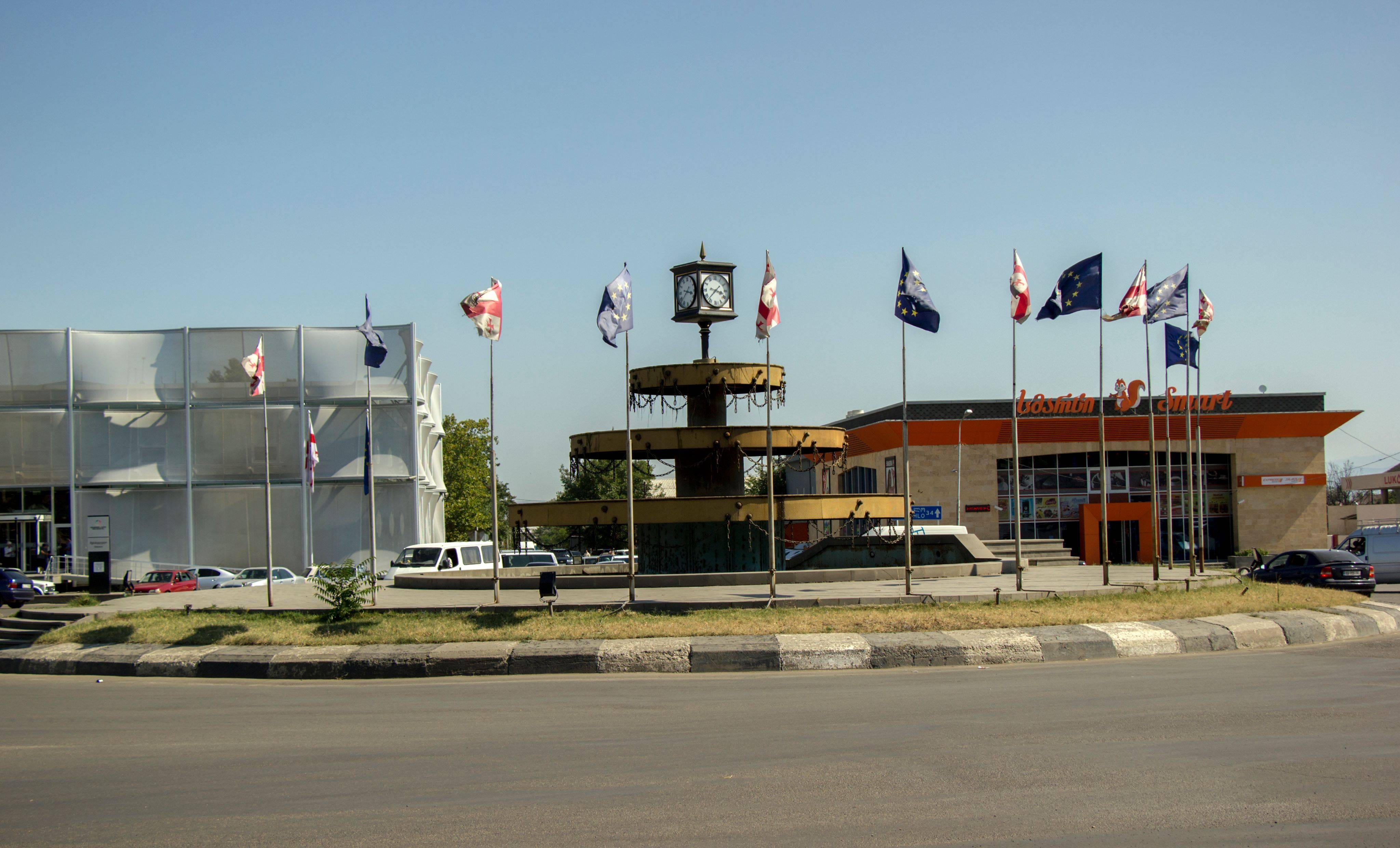საერთო ცხელი ხაზი +995 577 07 05 63


The signatory civil society organizations respond to political and religious instrumentalization of the events around Nariman Narimanov statue and urges the Georgian Government including the State Ministry for Reconciliation and Civic Equality to pursue a political process in response to tensions around surrounding it.
For several months now, we have been observing a problematic and chauvinistic campaign organized by bishop of Marneuli and Hujabi Eparchy and ultra-conservative groups, including Georgian March and Primakov Georgian-Russian Public Centre in relation to the statue of Narimanov, of a Bolshevik writer and revolutionary.
Controversies surrounding N. Narimanov statue have been arising periodically in the city of Marneuli throughout recent years. This became pressing after local municipality renovated the statue without prior consultation with the public on the issue or activities aimed at social approval.
On May 24, 2020 during the weekly Sunday service, bishop of Marneuli and Hujabi Eparchy Giorgi Jamdeliani criticized Mayor of Marneuli Zaur Durgali for renovating the statue of Nariman Narimanov, presented an ultimatum and made manifestly chauvinistic statements. Soon after, bishop’s statements were publicly endorsed by Georgian March and other ultra-conservative radical groups and were followed with an aggressive campaign in the social media.
On May 30, State Security Services initiated investigation under the article of the Criminal Code on Racial Discrimination. However, the aims of the investigation have not been clear and unambiguous for the public. None of the other state agencies, including the State Ministry for Reconciliation and Civic Equality and local municipality have created a working framework for political resolution of the issue.
On July 16, when the topic was not any more actual, bishop Giorgi Jamdeliani, head of Primakov Georgian-Russian Public Centre Dimitri Lordkipanidze and other leaders affiliated with the Georgian March held a protest rally in Marneuli with the same demands. The protest was followed by a spontaneous counterrally by young local Azerbaijani population. Police was present to ensure security on the spot.
Despite social tensions in the region, up until now relevant state agencies are reluctant to react to ongoing processes and try to ignore the issue entirely. The only state action undertaken was the initiation of investigation by State Security Services. However, as the aims, content, and context of the investigation itself is still ambiguous and problematic, it did not produce any results, including prevention of next steps taken by radical groups.
We hold that that this process reveals significant challenges of culture politics, which requires careful and systemic resolution. This, on the one hand is related to inconsistency of policies on acknowledgement and rethinking of Soviet past and on the other hand, insufficient representation of identity and culture of religious and ethnic minorities in the national policies on history and culture, at times even reflected in attempts to erase that.
Azerbaijani community of Georgia has close identification with political and cultural system of Georgia, however, simultaneously, there is the perception that their historical and cultural role and contribution to our common history and culture is not sufficiently recognized and represented. This becomes evident with the culture politics of Marneuli municipality. Precisely due to this, the community in Marneuli has varied perception toward N. Narimanov statue and along with acknowledging his contradictory political biography, removal of the statue arouses fear and similar sentiments of having own history erased.
Therefore, although signatory organizations do not approve of putting up statues of Bolshevik leaders, considering the context above, we believe it is essential that the state realizes the sensitive nature and social aspects of the issue and respond to it with a consistent culture politics. Peace and actual dialogue between communities has to become an unambiguous goal of Government and its agencies. It is crucial, that a working group is created upon the initiative of the Ministry for Reconciliation and Civic Equality, which will decide the issue with the involvement of scholars, experts, and local community leaders through peaceful political means. It is important, that in this process consultation and educational approaches are followed in communication with local communities. Furthermore, it is indispensable that the state realizes the significance of protecting and representing culture of Azerbaijani community and the need for creating a multicultural environment. Such a long-term and peaceful political process is also key to prevention of estrangement between different social groups and related socially traumatic experiences.
Absence of state policies with regard to violent ultra-conservative radical groups deserves separate attention. The state does not study structural reasons for the rise of ultra-conservative agendas and violent groups, nor does it pursue a systemic policy against it. Apart from that, even on an operational level, the state does not take measures to identify interests, affiliations, and sources of financing of the groups and to make them public, neither does it take preventive steps against organized violence and unlawful activities of these groups.
Considering the above, the signatory organizations urge the Government, State Ministry for Reconciliation and Civic Equality, the Ministry of Education, Science, Culture and Sport of Georgia:
State Security Services
Signatory Organizations:
The website accessibility instruction